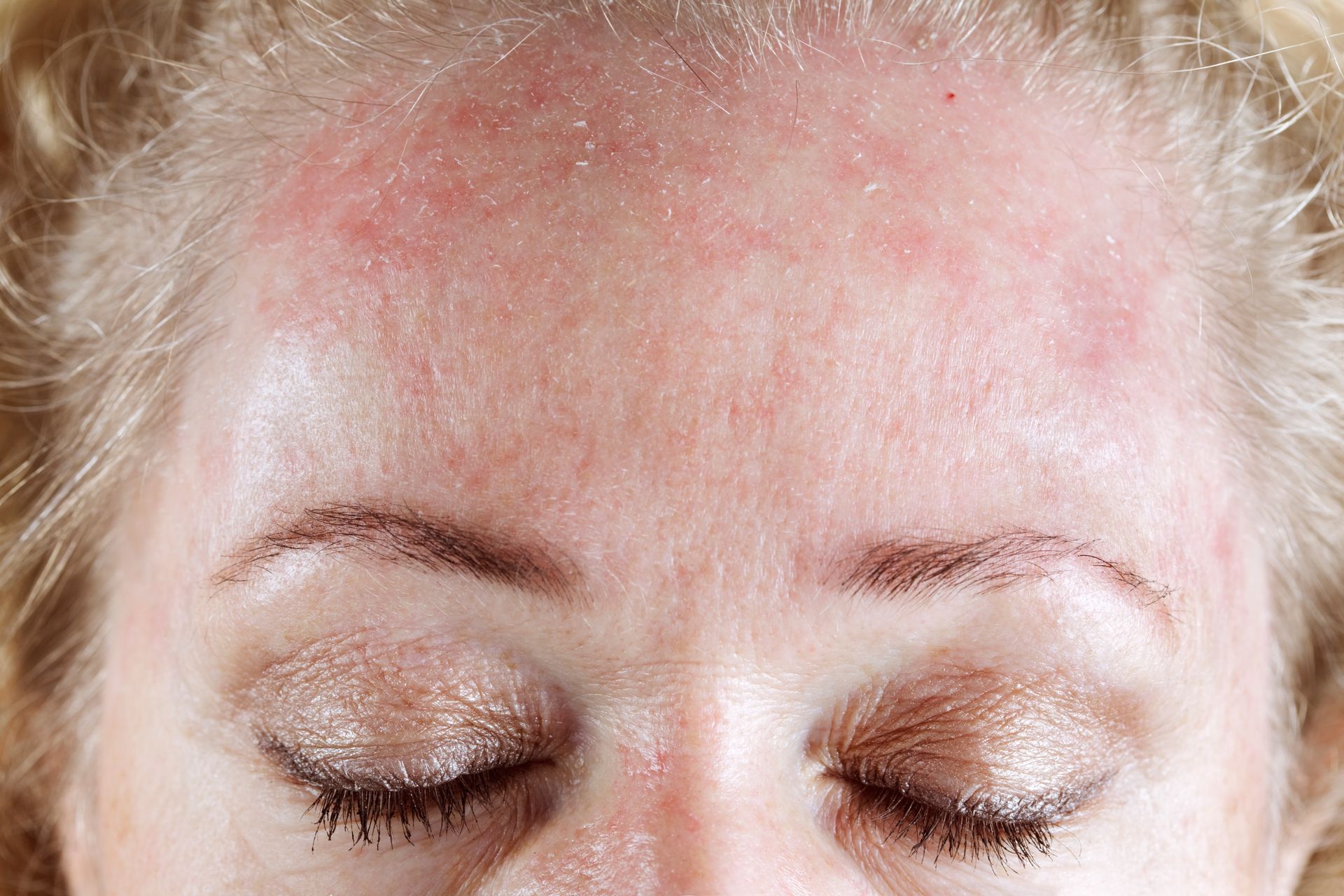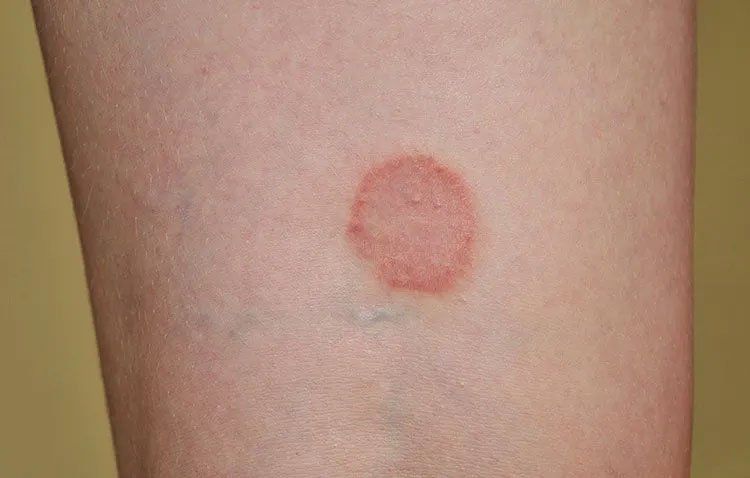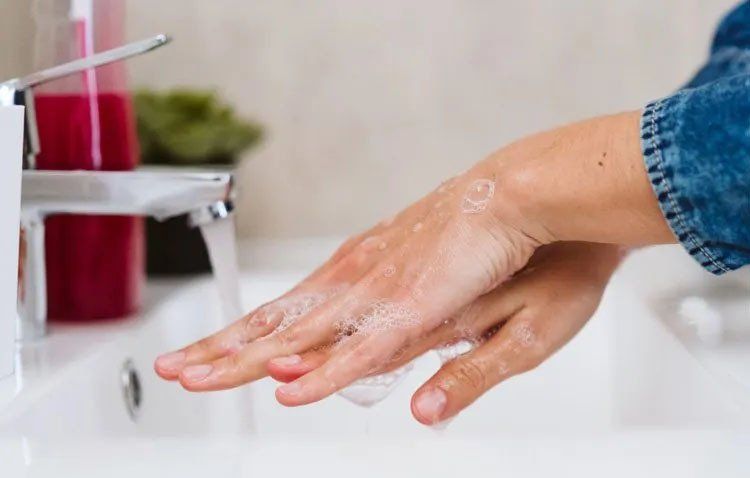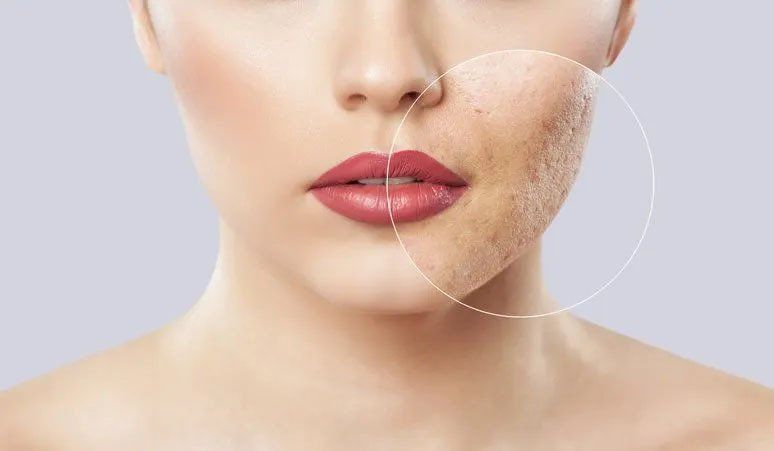Questions to Ask If You Suffer From Seasonal Dry Skin
October 12, 2019
Questions to Ask If You Suffer From Seasonal Dry Skin

As the seasons change and the weather cools, your skin goes from soft and smooth to dry and flaky. What can you do to combat seasonal dryness? If dry skin is an issue, take a look at the questions to ask before hydration becomes an even bigger dermatological dilemma.
What Makes Your Skin Dry, Itchy, or Flaky?
Hot baths, dehydration, beauty or hygiene products, cold wind during outdoor activities, and hot air from forced-air systems can cause dry skin. Before you can solve your moisture issue, you need to understand the root cause.
In some cases, a diagnosable dermatological condition, such as eczema, may masquerade as common cracked skin. While you can have both at the same time, if your dry skin is something more, your dermatologist needs to examine the issue and create a treatment plan.
If you're not sure what makes your skin dry out (or what makes it worse), keep a journal to detail possible causes. Include cosmetic and hygiene products you use, outdoor activities you participate in, and medications you take. Also note your bathing routine and how often you are exposed to forced-air heat.
Have You Tried an Exfoliator?
While much of the dead, dry skin will slough off on its own, an exfoliator can speed the process. If you dream of smooth skin, exfoliation (the removal of the outer layer of dead skin through physical or chemical means) can help.
To exfoliate dry skin, start with a gentle product made for sensitive skin - especially if you have acne or red or itchy skin. A dye- and fragrance-free exfoliating scrub can gently lift the skin and smooth the area. If you're still dry, an exfoliating mitt or loofah can help.
Extreme dryness may require a professional's help. The dermatologist can recommend a product or try a chemical treatment in the office. These are typically stronger options that may also increase sensitivity or redness. If you already have sensitive skin, tell the doctor before making any decisions.
Do You Use a Moisturizer?
Even though exfoliating can remove dead, dry skin, it won't completely cure the problem. Provided you don't have another diagnosable dermatological condition, you may only need a moisturizer to stop the drying.
If you don't already use a moisturizer, now is the time to start. A gentle, dye- and fragrance-free product can add the moisture your skin craves without causing redness or irritation. Your dermatologist can help you to find a brand that meets your skin's needs - such as an oil-free moisturizer for acne-prone skin or a heavier cream for extreme drying.
Do You Use the Right Amount of Moisturizer?
A thin slick of lotion may not do the trick to tame your dry skin. If you slather on lotion or cream and still experience dry skin, you may need more moisturizer. There's no magic number when it comes to moisturizer quantities. Start small and add more if your skin doesn't respond.
Do You Need a Heavier Cream?
Light lotions can solve minor dry skin problems. But these products may not help to heal your skin. A heavier cream with ingredients such as mineral oil, lanolin, shea butter, or jojoba oil may help.
Are You Allergic to Your Moisture Product?
Some moisturizers contain irritating ingredients, such as dyes, perfumes, or preservatives. While these lotions add moisture, the irritation may make the dryness and flaking worse. The same goes for products you're allergic to. If the dryness worsens after you start a new moisturizing routine, consider the possibility you're allergic to an ingredient in the product.
A dermatologist can help you to explore ingredients and find products that heal your skin - minus a reaction.
Do you need help to solve your dry skin issues? Contact Spartanburg Dermatology & Skin Surgery Clinic, P.C., for more information.
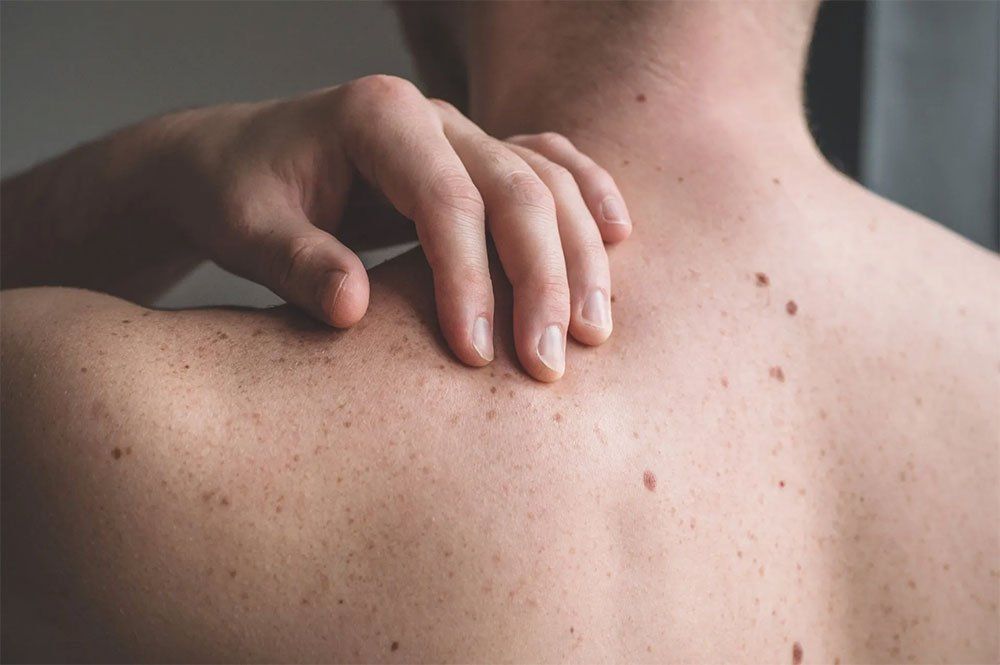
Your body is protected by your skin, which helps prevent damage to internal tissues and infection. However, the skin isn't impervious to disease and infection, and skin conditions are common at all stages of life. If you would like to learn more about your skin, check out these four skin diseases and conditions that are common in adults.
Skin tags develop in almost one-half of the adult population. While these elevated skin growths don't pose any significant health hazards, they can prove both uncomfortable and embarrassing, depending on their location. Fortunately, a qualified dermatologist can remove your unsightly skin tags safely and easily.
Lines around the eyes are almost impossible to hide. Makeup can sometimes make them more noticeable, and sunglasses are not acceptable to wear everywhere. A more effective solution is to learn the little habits that cause the lines to begin or worsen existing wrinkles. Additionally, use these four inexpensive and easy ways to reduce the risk of crow's feet and fine lines.
Lupus is an autoimmune disorder. If you have lupus, your immune system targets your tissue and organs. Unfortunately, you may suffer from skin rashes as your immune system attacks your skin. In fact, skin problems occur in 66 percent of patients with lupus, as noted by the Lupus Foundation of America. Fortunately, a dermatologist can help you combat the skin issues that arise from this disorder.

Skin cancer is the most common cancer in the United States, affecting one in five people in their lifetime, according to the American Academy of Dermatology. While some types of skin cancer can be treated effectively, other types, particularly melanoma, can often be fatal. Take steps to prevent skin cancer and reduce your risk.

